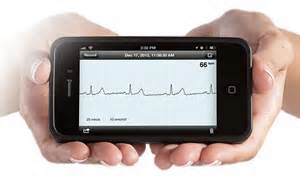 How Apple’s ResearchKit Could Support Device Makers in Conducting Clinical Trials (emdt)
How Apple’s ResearchKit Could Support Device Makers in Conducting Clinical Trials (emdt)
Apple says its ResearchKit software will enable researchers and healthcare professionals to gather information on a scale that the company says could potentially reach “hundreds of millions of users.”
“It is already happening to a large degree,” Greg Caressi, senior vice president, healthcare and life sciences, for Frost & Sullivan, told European Medical Device Technology. “Device makers are creating products that can be used by consumers in their homes to support remote monitoring applications.”
ResearchKit is used with Apple’s iPhone for access to an individual’s health data in real time, such as weight, blood pressure, glucose levels, and asthma inhaler use. ResearchKit can also access the iPhone’s accelerometer, microphone, gyroscope, and GPS sensors to gain insight into a patient’s gait, motor impairment, fitness, speech, and memory to test and monitor diseases such as Parkinson’s.
The main feature of ResearchKit is to support companies to carry out clinical trials and healthcare professionals to collect information on a much larger and more efficient scale from individuals on a daily basis than they could in the past, Caressi said. “Rather than filling out paper forms, or showing up at the research center once a week, month, etc. individuals that are part of the subject pool for a trial can report information electronically via their own device,” Caressi said. “This will enable collection of more frequent (and theoretically more accurate) data to support research by pharma and medical device companies, as well as academic medical centers. Remote monitoring devices that might be used to check a patient’s biometrics can automatically be uploaded and transmitted to researchers for people involved in trials, which creates better data than patient entered logs often used in trials, or less frequent readings taken in clinical settings when patients come in.”
Apple is just beginning to form partnerships with research organizations, which already include American Heart Association, ULCL Jonsson Cancer Center, Weill Cornell Medical College in conjunction with to Mount Sinai in N.Y., , and other academic medical centers, while numerous other research partners and private firms will likely use ResearchKit in the future, Caressi said.
However, a potential drawback is that despite the several hundred million iPhone users who could potentially use ResearchKit, they do not necessarily form a sufficiently diverse demographic group for research purposes. “Drawbacks are the requirement to use an Apple smart phone or tablet, which limits the patient pool,” Caressi said. “However, the possibility of skewing results to a less diverse set of users is offset by the wider pool of subjects you can now draw on, however. Eventually, these tools could be used to both recruit individuals into trials more rapidly and to expand the reach of trials to those outside of limited geographic areas where patients are near research centers (big hurdles and costs in running trials), as well as in collecting better data and more frequent data that will help understand trial results sooner and with more accuracy.”
Apple is obviously betting that ResearchKit could help boost its iPhone and other device sales. “Apple would like to see this drive device sales, as researchers could even purchase devices to send to patients in a kit with other remote monitoring tools as part of the trial,” Caressi said.
Other device makers will likely follow Apple’s lead. Already, Qualcomm Life and Novartis have formed a similar partnership.
More medical device makers will almost inevitably seek more opportunities to design devices that “communicate wirelessly to a smart phone, which acts as a transmission hub to relay information back to clinicians or remote patient monitoring services providers,” Caressi said. Connected “use-at-home” devices will increasingly include weight scales, blood glucose monitors, inhalers, blood pressure cuffs, pulse oximetry meters, and even ECGs, Caressi said.
Researchers in the United States have already announced ResearchKit projects. The Share the Journey app, developed by the Dana-Farber Cancer Institute, Penn Medicine, Sage Bionetworks, and UCLA’s Jonsson Comprehensive Cancer Center, will use the software for a research project to help understand why some breast cancer survivors recover faster than others, why their symptoms vary over time, and what can be done to improve symptoms, according to Apple.
Developed by Stanford Medicine, the MyHeart Counts app measures activity and uses risk factor and survey information to help researchers more accurately evaluate how a participant’s activity and lifestyle relate to cardiovascular health. According to Apple, Massachusetts General Hospital developed the GlucoSuccess app to understand how various aspects of a person’s life—diet, physical activity and medications—affect blood glucose levels.

 Tiger Buford – retained recruiter dissecting orthopedics
Tiger Buford – retained recruiter dissecting orthopedics